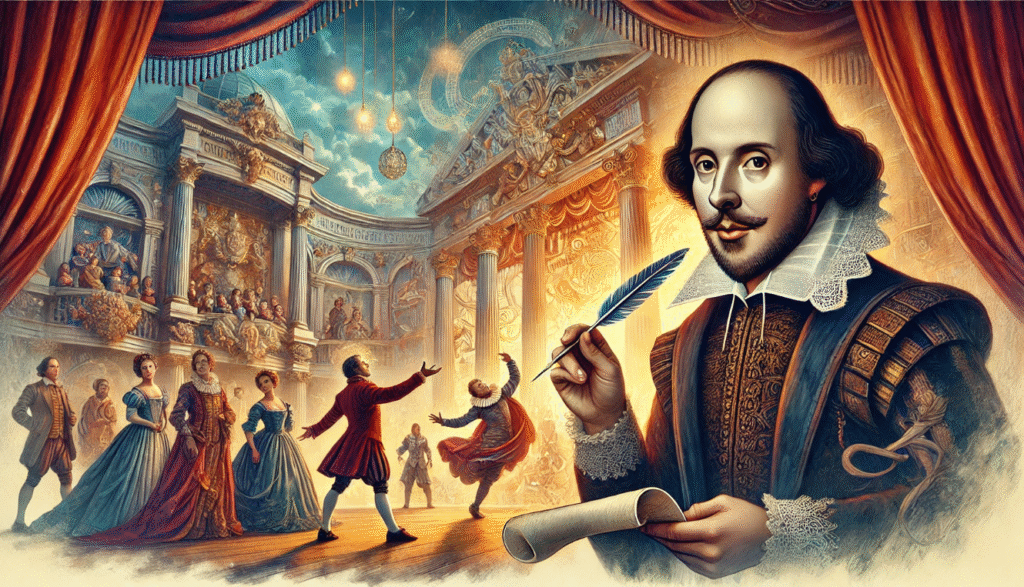
How the Role of Shakespeare in Shaping Theatrical History Revolutionized Modern Theater
When we think of theater today, it’s impossible to ignore the profound influence of one man: William Shakespeare. 🌟 The role of Shakespeare in shaping theatrical history cannot be overstated—his innovations have left an indelible mark on how stories are told on stage. But what exactly made Shakespeare’s work so revolutionary, and how did it transform theater as we know it?
In this article, we’ll explore how Shakespeare’s groundbreaking contributions in the realms of storytelling, character development, and dramatic structure continue to influence modern theater. Whether you’re a theater enthusiast or someone simply curious about the roots of contemporary plays, understanding his role offers a deeper appreciation of today’s performances. Keep reading to uncover how Shakespeare’s timeless impact still resonates on stages across the world today! 🌍🎬
Table of Contents
Toggle1: Who Was Shakespeare and Why Does He Matter? ✨
William Shakespeare, often referred to as the Bard of Avon, is one of the most influential figures in the world of theater. Born in 1564 in Stratford-upon-Avon, England, Shakespeare wrote 39 plays, 154 sonnets, and several poems, leaving behind a legacy that continues to shape modern theater today. But what exactly makes him so important?
Why Shakespeare Matters to Theater 🎭
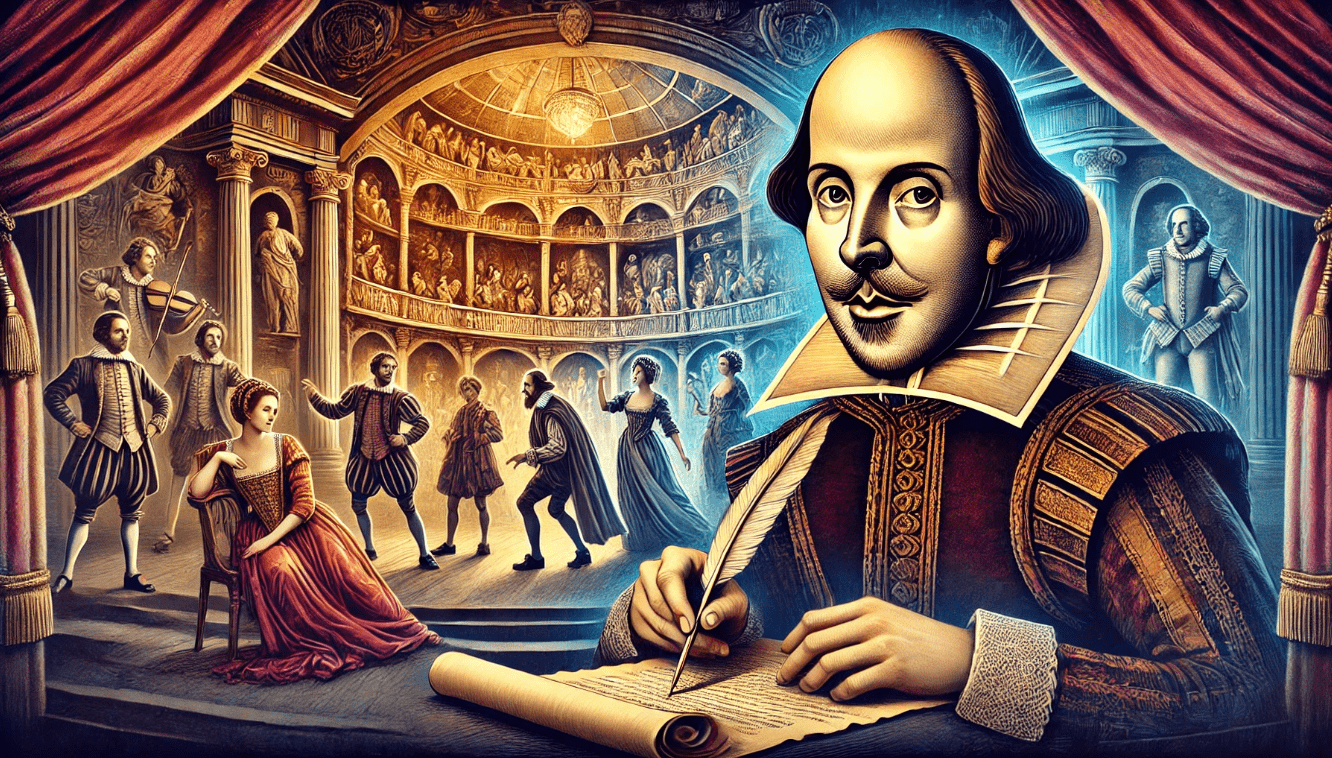
- Revolutionizing Storytelling: Shakespeare transformed storytelling by introducing complex plots, deep characters, and universal themes. His plays explore love, power, jealousy, betrayal, and more—topics that remain relevant in modern society. These timeless themes allow Shakespeare’s works to be adapted across cultures and eras, making them just as impactful today as they were 400 years ago.
- Character Depth and Development: One of Shakespeare’s key innovations was his ability to create multi-dimensional characters. Before him, characters in plays were often one-dimensional and stereotypical. Shakespeare’s characters, from the ambitious Macbeth to the tortured Hamlet, are complex and undergo significant development throughout the play. This approach to character-building is a cornerstone of modern drama and continues to inspire playwrights and actors worldwide.
- New Language and Expression: Shakespeare’s contribution to the English language is also unparalleled. He coined over 1,700 words and popularized phrases that are still in everyday use today. Expressions like “break the ice,” “wild-goose chase,” and “heart of gold” can all be traced back to Shakespeare’s writings. His mastery of language not only enhanced theatrical dialogue but also gave playwrights the freedom to explore language in new, creative ways.
2: Shakespeare’s Theatrical Innovations 🌟
William Shakespeare didn’t just write plays—he changed the very nature of theater. His innovations in storytelling, character development, and stagecraft were groundbreaking and continue to influence the world of theater today. Let’s explore some of his most significant contributions that revolutionized the art form. 🎭
1. Complex Characters and Psychological Depth 🧠
Before Shakespeare, characters in plays were often simple and one-dimensional. Shakespeare introduced complex characters with deep inner conflicts and motivations. His characters are not just good or bad; they are multifaceted, like the tortured Hamlet or the ambitious Lady Macbeth. This complexity added psychological depth to his plays, making them more relatable and engaging.
- Why It Matters Today: Modern playwrights and filmmakers draw from this same principle. Today’s characters, from television to theater, often mirror the psychological depth Shakespeare introduced. Complex, morally ambiguous characters are now a standard in storytelling.
2. Innovative Use of Soliloquies 💬
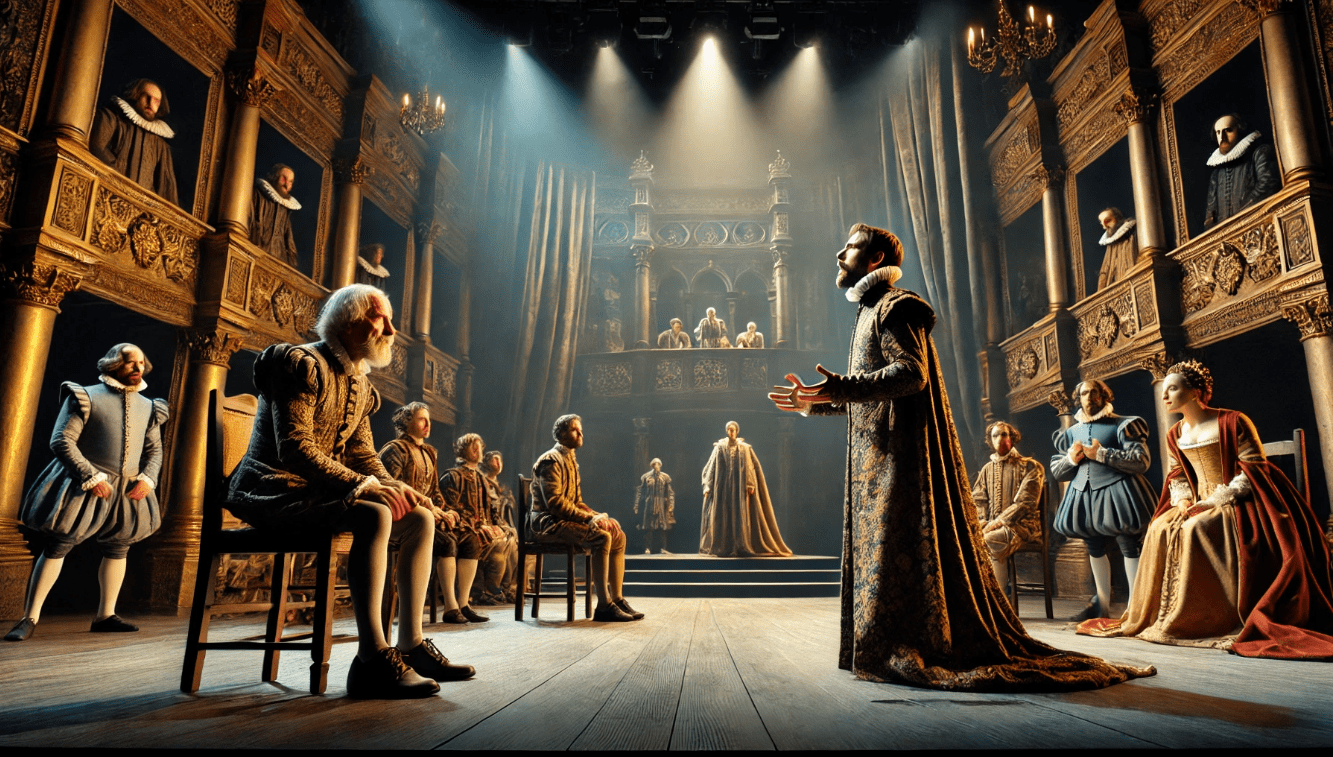
One of Shakespeare’s most powerful tools was the soliloquy—a moment when a character speaks directly to the audience, revealing their inner thoughts and feelings. Famous soliloquies like Hamlet’s “To be or not to be” speech allowed Shakespeare to delve deep into his characters’ psyches, providing clarity on their motivations.
- Why It Matters Today: Soliloquies are still widely used in modern theater, especially to convey a character’s inner turmoil or important revelations. Shakespeare’s soliloquies set the bar for emotional intimacy in theater.
3. Mastery of Language and Wordplay ✨
Shakespeare’s skill with language was unparalleled. He coined over 1,700 words, some of which are still in use today! He also excelled in wordplay—using puns, double meanings, and metaphors to add richness to his work. His command of language made his plays not just performances but linguistic masterpieces.
- Why It Matters Today: Modern playwrights, poets, and even screenwriters borrow from Shakespeare’s ability to bend language to their will. His playful approach to words encourages creativity and linguistic experimentation, influencing everything from contemporary drama to rap battles.
4. Tragic and Comic Blending 🎭
Shakespeare had a unique talent for blending tragedy with comedy. In plays like The Merchant of Venice and Twelfth Night, he skillfully balanced humor with serious themes, creating emotional complexity. This fusion of genres not only made his works more engaging but also showed the full spectrum of human experience.
- Why It Matters Today: Many modern plays, films, and TV shows incorporate both humor and drama to explore complex issues. This balance of light and dark allows audiences to connect with characters and themes in a more profound way.
5. The Three-Act Structure ⏳
Shakespeare is often credited with refining the three-act structure, which is now a staple of modern storytelling. In his plays, the first act introduces the characters and conflict, the second builds tension and complications, and the third brings resolution—creating a satisfying narrative arc.
- Why It Matters Today: Whether you’re watching a film, reading a novel, or attending a play, the three-act structure remains a foundational element of storytelling. It keeps the audience engaged, creating natural suspense and emotional payoff.
Why Shakespeare’s Innovations Matter Today 💡
Shakespeare’s theatrical innovations weren’t just artistic flourishes—they transformed the way stories were told on stage and beyond. Today, modern playwrights and filmmakers continue to draw from his pioneering techniques. Whether through complex characters, masterful language, or the structure of the narrative itself, Shakespeare’s influence is woven into the fabric of contemporary theater, film, and television.
By understanding how Shakespeare revolutionized the theater, we can better appreciate the depth and richness of modern storytelling. 🎬🌟
3: Shakespeare’s Impact on Modern Theater 🎭
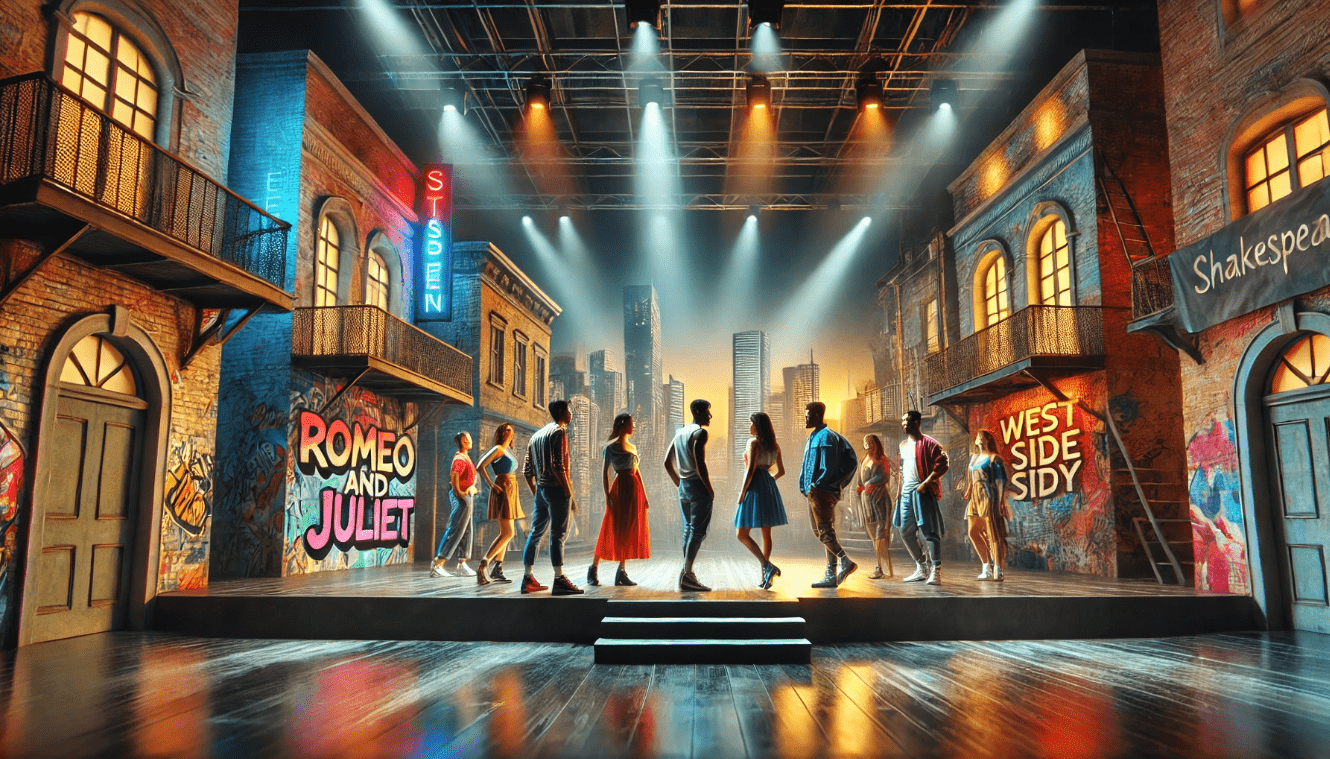
William Shakespeare’s influence on modern theater is immeasurable. His groundbreaking contributions have shaped not only the structure and content of plays but also the way actors, directors, and audiences experience live performances. Let’s explore how his legacy continues to impact theater today. 🌍
1. Shakespeare’s Influence on Playwriting ✍️
Shakespeare’s approach to storytelling, with intricate plots, rich character development, and complex themes, set the foundation for modern playwriting. His ability to weave subplots seamlessly into the main storyline became a standard for future playwrights.
- Practical Example: Modern playwrights, such as Tennessee Williams and Arthur Miller, adopt many of the techniques Shakespeare used to create conflict, tension, and emotional resonance. Contemporary drama still relies on these principles to craft compelling stories that engage audiences deeply.
2. Universal Themes that Resonate Across Time ⏳
One of Shakespeare’s greatest gifts to theater was his exploration of universal human themes—love, ambition, power, betrayal, and identity. These themes are as relevant today as they were in the 16th century, making his plays adaptable to different cultural contexts and time periods.
- Practical Example: Adaptations like West Side Story (based on Romeo and Juliet) and The Lion King (inspired by Hamlet) show how Shakespeare’s themes continue to be reimagined in films, musicals, and other art forms. Modern theater is full of works that echo Shakespeare’s exploration of human emotions and social issues.
3. Shakespeare’s Impact on Acting Techniques 🎬
Shakespeare didn’t just change the way stories were written; he revolutionized the way characters were performed. His characters were multi-dimensional and required actors to delve deep into psychological complexity. The use of soliloquies, for example, encouraged actors to explore inner monologues and express profound emotional states.
- Practical Example: Modern acting techniques, especially in methods like Stanislavski’s system, draw from the emotional depth and character analysis that Shakespeare pioneered. Today’s actors continue to use Shakespeare’s complex characters as models for creating fully realized performances on stage.
4. Shakespeare’s Impact on Theater Structure 🏛️
Shakespeare helped establish the three-act structure, a format that has become a key element of modern theater and film. His plays typically begin with an exposition, followed by rising action, and conclude with a resolution. This clear narrative arc keeps audiences engaged from start to finish.
- Practical Example: Whether you’re watching a contemporary play, a TV series, or a blockbuster film, the three-act structure remains the backbone of storytelling. Shakespeare’s mastery of structure ensures that modern productions have clear, effective pacing and emotional build-up.
5. Enduring Popularity of Shakespearean Adaptations 📽️
Today, Shakespeare’s works are constantly being adapted, reinterpreted, and reimagined. From blockbuster films to indie theater productions, Shakespeare’s influence is seen everywhere. His works are the cornerstone of many theater festivals and continue to be performed in some of the world’s most prestigious venues.
- Practical Example: Films like 10 Things I Hate About You (adapted from The Taming of the Shrew) and Shakespeare in Love (which explores Shakespeare’s own life) show how his work is continually relevant in popular culture. Similarly, theater companies around the world regularly put on Shakespeare’s plays, demonstrating their lasting appeal and versatility.
Why Shakespeare’s Impact on Modern Theater Matters 🎭
Shakespeare’s influence on modern theater goes far beyond just his plays. His contributions shaped how stories are told, how characters are portrayed, and how audiences engage with theater. By studying Shakespeare, modern playwrights, actors, and directors are able to create works that are emotionally resonant, structurally sound, and deeply connected to the human experience.
As modern theater continues to evolve, Shakespeare’s fingerprints remain evident in everything from character development to the structure of contemporary plays. Understanding his impact not only deepens our appreciation for his works but also illuminates the ongoing influence of his innovations in the world of theater today. 🌟
4: The Continued Relevance of Shakespeare’s Work Today 🌍
William Shakespeare’s work has stood the test of time, and his relevance continues to shine brightly in modern theater and beyond. But what makes his plays so enduring, and why do we still perform and adapt them centuries after they were first written? Let’s explore why Shakespeare’s works remain so important and how they continue to influence today’s theatrical landscape. 🎭
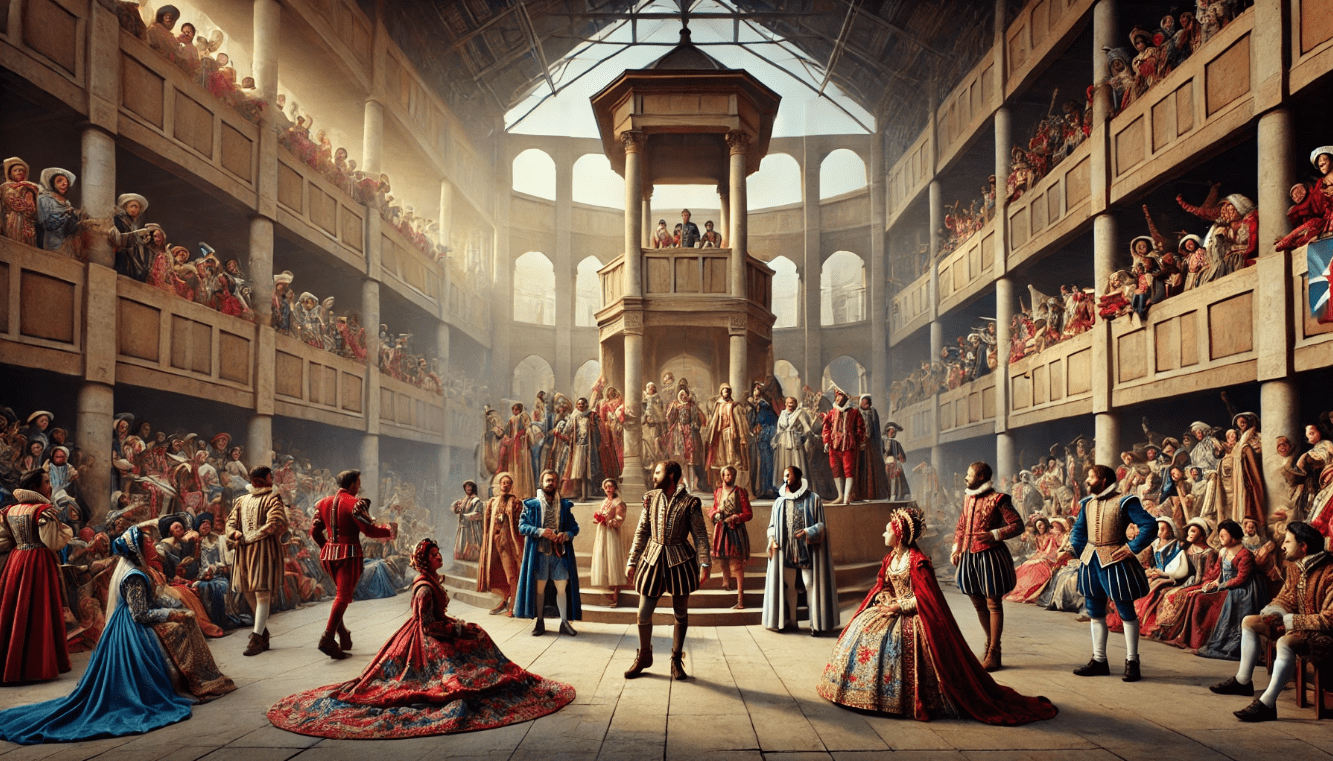
1. Timeless Themes That Speak to All Generations 💬
Shakespeare’s plays delve into universal human experiences—love, jealousy, betrayal, ambition, and the complexities of human nature. These themes transcend time and culture, making his works relatable to people all around the world.
- Why It Matters Today: Modern playwrights and directors still turn to Shakespeare for inspiration because his themes resonate across generations. From Macbeth’s exploration of unchecked ambition to Romeo and Juliet’s tragic love story, these themes are just as relevant in today’s social, political, and emotional contexts. Audiences continue to connect with the emotions and struggles portrayed in his works.
2. Endless Adaptations and Reimaginings 🎬
One of the reasons Shakespeare’s work remains popular is the sheer number of adaptations, reinterpretations, and modern retellings. His stories are incredibly versatile, making them perfect for reinterpretation across different cultures, genres, and formats.
- Practical Example: Take The Lion King—an animated film inspired by Hamlet—or 10 Things I Hate About You, a modern high school adaptation of The Taming of the Shrew. These adaptations demonstrate how Shakespeare’s themes, characters, and plots can be molded to fit different settings and mediums, from films to musicals to modern theater productions. His works continue to thrive in new forms, making them accessible to diverse audiences.
3. Shakespeare in Popular Culture 🎥
Shakespeare’s influence is not confined to the stage. His works have found their way into films, TV shows, books, and even video games. These adaptations help keep his legacy alive in the mainstream and introduce his works to new audiences in fresh, engaging ways.
- Practical Example: Movies like Shakespeare in Love (a fictional account of Shakespeare’s life) and TV series like The Simpsons (which often references Shakespeare’s plays) continue to keep his work relevant in popular culture. Even pop culture references, memes, and quotes from his plays are used in everyday conversations, proving that his language and ideas continue to resonate in modern life.
4. Shakespearean Festivals and Global Performances 🌍
Around the world, Shakespeare’s plays are performed in numerous languages and settings. From small local theaters to grand international festivals, his works continue to be staged at some of the most prestigious venues, including the famous Shakespeare’s Globe Theatre in London.
- Why It Matters Today: Shakespeare’s ability to be adapted to various cultural contexts keeps his plays alive. Festivals, like the Shakespeare Festival in Stratford-upon-Avon, continue to bring Shakespeare’s works to global audiences, ensuring his legacy is celebrated worldwide. These performances demonstrate how Shakespeare’s influence extends across borders, showing how his plays can speak to different cultures and communities.
5. Shakespeare as a Learning Tool for New Generations 📚
Shakespeare’s works are not just for seasoned theatergoers. His plays are studied in schools around the world and are often the first exposure students have to literature and drama. This early introduction helps keep his works relevant for future generations and ensures that his contributions to the world of theater are passed down.
- Why It Matters Today: As students learn about Shakespeare, they not only discover his complex language and poetic brilliance but also develop an understanding of the deep emotions and timeless themes he explored. This exposure allows them to appreciate and engage with modern interpretations of his work, encouraging the next generation of theater enthusiasts, writers, and directors.
5: Practical Ways Shakespeare Influences Modern Theater Productions 🎭
Shakespeare’s influence extends far beyond the pages of his plays. Today, his ideas, techniques, and themes are deeply embedded in modern theater productions, from scriptwriting to performance. Let’s look at some practical ways his legacy shapes how theater is created and experienced today. 🌟
1. Character Development and Emotional Depth ❤️

One of Shakespeare’s most enduring contributions to modern theater is his complex characters. Today, playwrights continue to craft multi-dimensional characters, inspired by Shakespeare’s ability to portray internal conflict, moral ambiguity, and psychological depth.
- Practical Tip: When writing or directing a modern play, consider developing characters with conflicting motivations or deep emotional struggles. This allows for richer storytelling and stronger audience engagement, much like Shakespeare’s characters such as Hamlet or Lady Macbeth.
2. Incorporating Soliloquies for Character Insight 💬
Shakespeare’s use of soliloquies—moments when characters speak their innermost thoughts directly to the audience—remains a powerful tool in modern theater. These speeches provide a window into a character’s psyche, offering insight into their motivations and struggles.
- Practical Tip: Incorporate soliloquies in your own work or production. Whether it’s a direct monologue or an internal dialogue spoken aloud, this technique helps actors connect with their characters and allows audiences to better understand their emotional journey.
3. Using Themes of Universal Relevance 🌍
Shakespeare’s themes of love, power, revenge, and human frailty are timeless and universally relatable. Modern playwrights frequently draw on these themes to address contemporary social issues or to explore personal struggles that resonate with a wide audience.
- Practical Tip: When adapting Shakespeare or creating original work, consider how universal themes like ambition (Macbeth) or injustice (The Merchant of Venice) can be modernized to address today’s cultural or political climate. These themes make the play feel timeless and relevant to modern audiences.
4. Blending Tragedy and Comedy for Emotional Complexity 🎭
Shakespeare was a master of blending tragedy with comedy, often within the same play. This mix created emotional roller coasters that kept audiences captivated. Modern productions continue to follow this blueprint, balancing light-hearted moments with heavy, emotional scenes.
- Practical Tip: Incorporate both dramatic and comedic elements into your production. Allow for humor even in the most intense moments, as it gives the audience relief and makes the tragedy more impactful—just as Shakespeare did in plays like Twelfth Night or King Lear.
5. Adaptations and Reinterpretations 🎬
One of the most significant ways Shakespeare influences modern theater is through adaptations. From Broadway to Hollywood, Shakespeare’s works have been re-imagined in countless ways. Whether it’s a contemporary setting or a completely new medium like film or musical theater, his stories remain flexible and adaptable.
- Practical Tip: Don’t be afraid to reinterpret a Shakespearean play in a fresh context. Setting Romeo and Juliet in a modern-day high school or adapting The Tempest as a science fiction story are just a few ways to breathe new life into his works for today’s audiences.
6. Emphasis on Dialogue and Language ✍️
Shakespeare’s masterful use of language and dialogue is one of the cornerstones of modern theater. His ability to craft beautiful, poetic lines alongside sharp, witty exchanges has inspired playwrights to value the power of language in storytelling.
- Practical Tip: When writing your own script or directing a performance, pay attention to the rhythm, flow, and impact of the dialogue. Shakespeare’s words are not just for storytelling—they’re also a key part of the emotional impact. Use language that resonates, elevates, and connects with your audience.
6: Shakespeare’s Everlasting Influence on Modern Theater 🌟
William Shakespeare’s impact on modern theater is truly immeasurable. His works have not only stood the test of time but continue to shape the very foundation of theatrical productions today. From writing techniques to performance styles, Shakespeare’s influence is still felt across the globe, making him as relevant now as he was during the Elizabethan era. Let’s take a closer look at how his everlasting influence continues to resonate in modern theater. 🎭
1. Shakespeare’s Influence on Storytelling Techniques 📚
Shakespeare revolutionized the way stories are told on stage. His innovative use of plot, structure, and character development has set the standard for how modern theater is crafted. Today, plays, films, and even TV shows often follow the narrative frameworks and techniques Shakespeare pioneered.
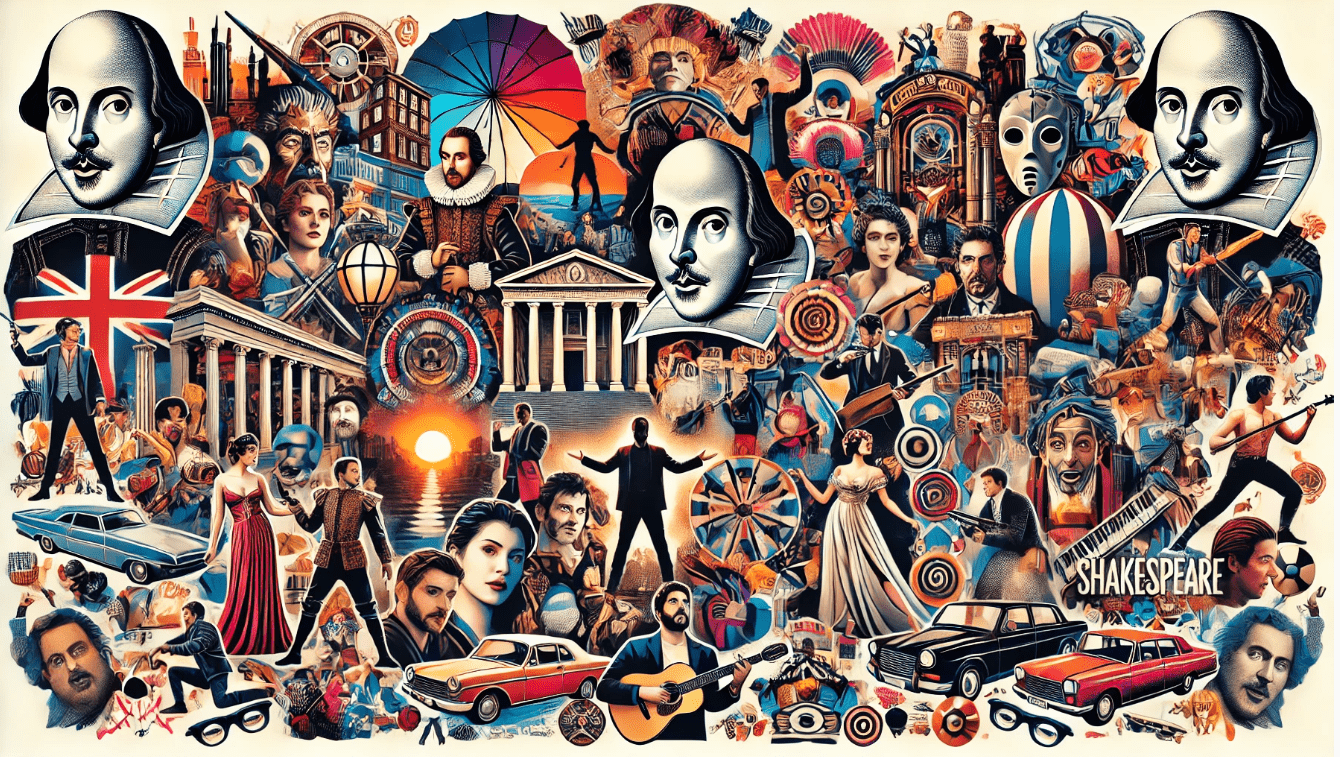
- Practical Insight: When creating modern narratives, consider Shakespeare’s approach of intertwining multiple subplots with the main storyline. This technique adds layers of meaning and keeps audiences engaged—just as he did in King Lear and A Midsummer Night’s Dream.
2. The Continued Popularity of Shakespeare’s Themes 🌍
Themes of love, ambition, jealousy, and betrayal explored in Shakespeare’s plays remain timeless. These universal human experiences resonate across cultures and time periods, making his works perpetually relevant. Modern playwrights continue to explore these same themes, which is why Shakespeare’s plays are still performed all around the world.
- Practical Insight: If you’re a playwright or director, incorporating universal themes into your work—whether through tragedy or comedy—can create emotional connections with modern audiences. Shakespeare’s ability to tap into core human emotions allows his works to transcend generations and remain relatable.
3. Shakespeare’s Language: A Lasting Legacy 📝
Shakespeare’s linguistic contributions are profound. He not only introduced over 1,700 words to the English language but also perfected the art of dialogue, creating poetic yet accessible speech. His distinctive style and use of metaphor, wordplay, and rhythm continue to influence playwrights and screenwriters today.
- Practical Insight: When writing or performing, consider how the rhythm and poetry of Shakespeare’s language enhance emotional depth. Whether using iambic pentameter or crafting memorable lines, Shakespeare’s mastery of language adds richness to any performance.
4. Shakespearean Adaptations in Modern Media 🎬
From Broadway musicals to Hollywood blockbusters, Shakespeare’s plays have been adapted countless times across various media. These adaptations maintain the essence of Shakespeare’s themes while placing them in contemporary or alternative settings. Productions like West Side Story (inspired by Romeo and Juliet) and The Lion King (inspired by Hamlet) show how Shakespeare’s works continue to influence modern storytelling.
- Practical Insight: Don’t hesitate to adapt or reinterpret Shakespeare’s plays in fresh ways for modern audiences. Whether setting Macbeth in a corporate environment or reimagining Julius Caesar as a political thriller, contemporary adaptations breathe new life into his work.
5. Shakespeare’s Influence on Acting and Performance 🎭
The way we approach acting has been greatly influenced by Shakespeare’s characters and dramatic structure. His works demand a deep understanding of emotional complexity, as well as the ability to switch between different tones and styles, from tragedy to comedy.
- Practical Insight: Actors can learn from Shakespeare’s deep, multifaceted characters by exploring psychological depth in their own performances. Modern acting methods, including Stanislavski’s system, draw inspiration from Shakespeare’s ability to create emotionally layered characters.
Embracing Shakespeare’s Timeless Influence on Modern Theater 🎭
William Shakespeare’s profound influence on modern theater is undeniable. From his groundbreaking contributions to character development, language, and storytelling structure, to the timeless themes that continue to resonate with audiences today, Shakespeare’s work has left an indelible mark on the world of performance. 🌍
As we’ve seen, his innovations have shaped everything from how we write plays to how we perform them. Modern playwrights, directors, and actors still draw from his techniques, ensuring that his legacy lives on in every act and scene performed on stages worldwide. Whether through the complex emotions of his characters, the richness of his language, or the universal themes that connect us all, Shakespeare’s work remains as relevant now as it was centuries ago.
By embracing his methods and understanding his influence, we can continue to enrich the world of theater, creating performances that are not only entertaining but deeply impactful. Shakespeare’s contributions have revolutionized the way we tell stories, and his influence will undoubtedly continue to shape theater for generations to come. 🌟
Frequently asked questions (FAQs)
1. How did Shakespeare change the world of theater?
Shakespeare revolutionized theater by introducing complex characters, intricate plots, and deep themes. His works broke away from simplistic storytelling, focusing on human emotions, inner conflicts, and moral dilemmas. These innovations laid the foundation for modern storytelling in theater and beyond.
2. Why are Shakespeare’s plays still performed today?
Shakespeare’s plays remain relevant because they explore timeless human experiences such as love, betrayal, and ambition. His characters and themes continue to resonate across generations, making his works adaptable to modern contexts. Whether through adaptations or original productions, his influence is still seen worldwide.
3. What makes Shakespeare’s characters so influential in modern theater?
Shakespeare’s characters are multi-dimensional and psychologically complex, often facing internal conflicts and moral ambiguity. This depth allows modern playwrights and actors to explore richer characterizations, making them relatable to today’s audiences.
4. How did Shakespeare impact modern storytelling techniques?
Shakespeare introduced narrative techniques such as the use of subplots, soliloquies, and a structured three-act play format. These elements continue to be fundamental in modern theater, TV shows, and films, helping to create emotionally engaging and well-rounded stories.
5. What role does Shakespeare’s language play in modern theater?
Shakespeare’s language is known for its richness, wordplay, and vivid imagery. His influence on modern theater lies in the use of powerful dialogue that conveys emotion and advances the plot. Playwrights and actors still draw on Shakespeare’s mastery of language to enhance modern scripts and performances.
6. How do modern adaptations of Shakespeare’s plays differ from the originals?
Modern adaptations of Shakespeare often place his stories in contemporary settings or alter the medium (e.g., film, musicals, etc.), but they retain the core themes, characters, and emotional depth. These adaptations make Shakespeare’s timeless ideas accessible to new generations and diverse audiences.
7. How can I apply Shakespeare’s techniques to my own writing or acting?
Incorporating Shakespeare’s techniques involves creating complex characters, using rich and poetic language, and exploring universal themes. Writers and actors can also experiment with soliloquies or mixing comedic and tragic elements to add depth and emotional layers to their work.
8. What are some examples of Shakespeare’s influence in popular culture?
Shakespeare’s influence is visible in films, television, and literature. Movies like The Lion King (inspired by Hamlet) and West Side Story (based on Romeo and Juliet) are prime examples of how his themes continue to shape modern storytelling in popular culture.
